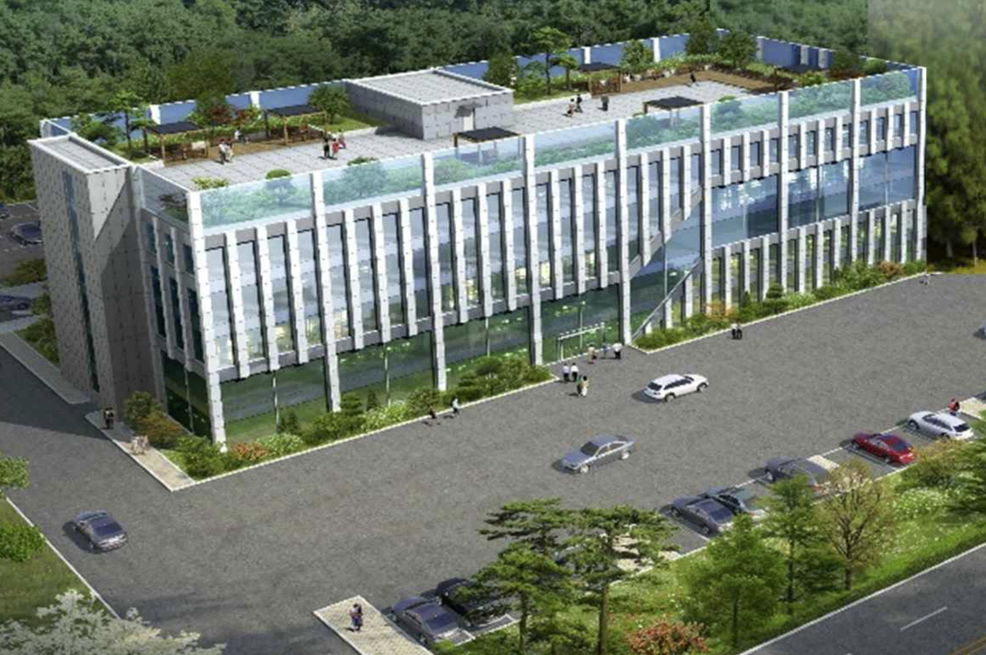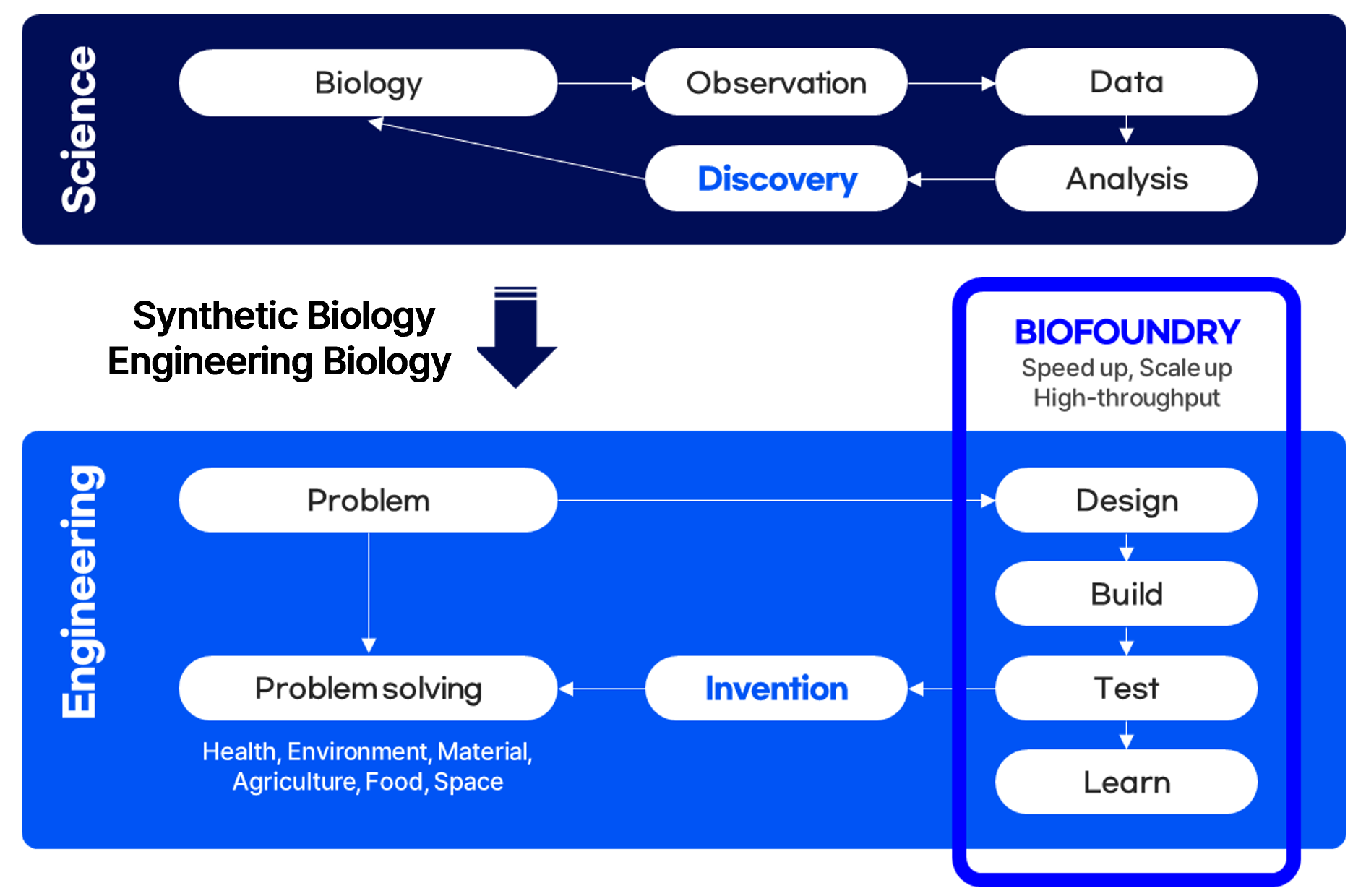Korea National Biofoundry
Biofoundries are more than facilities for conducting experiments using automated equipment; they are structured Research and Development (R&D) systems where biological design, validated construction, functional assessment, and mathematical modeling are performed following the Design-Build-Test-Learn (DBTL) engineering cycle.
As synthetic biology and biofoundry technologies gain attention in response to the growing need for a sustainable bioeconomy and environmental challenges, South Korea has launched a Korea National Biofoundry Project to enhance its synthetic biology capabilities (2025 ~ 2029). This project aims to strengthen bio-innovation through digital transformation, leveraging artificial intelligence and robotics.

Biofoundry Center Construction
- Establishment of physical building
- To house and operate biofoundry automation hardware and software services
DBTL Automation Hardware
- Design and implementation of demand-based DBTL workflows and core equipment
- Station construction through automation equipment integration
- Verification of station and workflow efficiency
Integrated IT Platform
- Development of integrated platform modules for stations, workflows, AI, and etc.
- Communication modules for industry and academia
Synthetic Biology/Engineering Biology & Biofoundry
Synthetic Biology/Engineering Biology have played a crucial role in transforming biological research into an engineering-driven discipline. This engineering-based approach builds upon conventional biological research to invent new tools and propose solutions to global challenges such as climate change, energy, and food security.
Biofoundries serve as essential infrastructure for accelerating biological research based on the DBTL (Design-Build-Test-Learn) cycle, which is a core strategy of engineering biology. By integrating automation, robotics, and artificial intelligence, biofoundries enhance national competitiveness in biotechnology and play a key role in establishing a sustainable bioeconomy.

Advancing biofoundry development: strategies and challenges. Biotechnology and Bioprocess Engineering (2024)